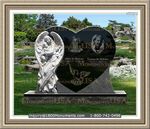|
Facts You Should Learn When Considering Traditions For Jewish Funeral
Following Jewish funeral traditions, mourners should never leave the deceased unattended. A Shomer, or "watchcmen", must stay with the deceased from their death until the time of the funeral and burial. The family typically supplies the watchmen and other family and close friends in mourning will stay with the body as well. Upon a death, the family must first call the rabbi, who will proceed with funeral arrangements and set a time for the funeral. Funerals are in the temple or synagoge, although modern Jews often hold graveside services only.
Jews do not believe in viewing the body after death; it is disrespectful because the deceased person cannot look back at you. Therefore, Jewish funerals are usually closed casket.
Unless it is required by local laws, Jews do not take part in the embalming process, which is used for sanitation and temporary preservation of the body. Instead, the sacred society, called the Chevra Kadisha, prepares the body for burial. They perform the Taharah, a type of Jewish purification.
The body is bathed and dressed in shrouds, called Tachrichim, which is the traditional burial garment. It is a simple garment with no pockets that symbolizes the fact that we take nothing with us when we leave this world and that we will be judged by God on our deeds and merits and not material possessions.
Families are able to choose their own caskets and make decisions regarding funeral details, however Jewish custom calls for wooden caskets with no metal and no flowers at the funeral.
Funerals usually last anywhere from 20 to 30 minutes. They consist of a eulogy, Scripture readings, and reading of the Psalms. Family members and other mourners perform the K'riah, or the rendering of the garment, either before or after the ceremony. This consists of tearing their clothing or placing a black ribbon on the outside of their clothes to show that they are in mourning. While Jewish funeral traditions are not kept as strictly as they once were, they are still followed by those in the Jewish faith.
|
|



























